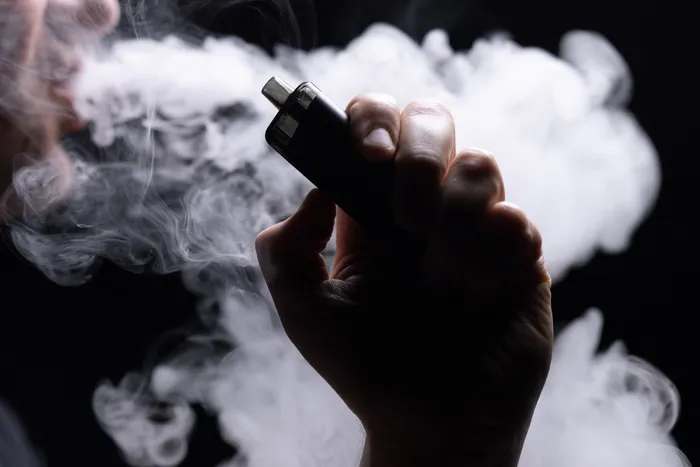Vaping and Cannabis: Urgent call to action to deal with a 'brewing storm' among SA youth

. The University of Pretoria has called for urgent and coordinated action by different sectors of society to deal with the “silent storm” brewing among South Africa youth – vaping and cannabis co-use.
Image: Supplied
The delay in passing the Tobacco Products and Electronic Delivery Systems Control Bill, which has been under processing since 2022, is exposing our youth to avoidable harm that will be hard to deal with later.
This is the warning message Professor Lekan Ayo-Yusuf, Chairperson and Head of the School of Health Systems and Public Health at the University of Pretoria, wishes to send to the authorities.
Prof Ayo-Yusuf will deliver a lecture on “Youth Vaping and Cannabis Co-use: Policy Failure of Mental Health Crisis?” on Monday evening, October 6.
Explaining what the university wishes to achieve with the lecture, Prof Ayo-Yusuf said the objective was to correct the “common misconceptions and misinformation – for example, the belief that vaping is harmless, or that cannabis is 'natural' and therefore safe, especially for adolescents”.
The university wanted to raise awareness about the fast-growing crisis and highlight new data showing that many young people are not only using these two products exclusively but are using them together. This, he warned, may increase risks associated with either product.
He explained that this worrying vaping-cannabis trend may be related to “how people are dealing with growing poor mental health” issues.
The university invited experts as well as government representatives to the talk about the “silent storm” brewing among South Africa youth. In its invite to the media, it asks: “Is this an unintended consequence of recent policy shifts, such as the Cannabis for Private Use Act of 2024 and the delayed regulation of e-cigarettes?”
Part of the objectives of the lecture, which was scheduled to be held at the university’s Hillcrest campus on Monday evening, is to encourage coordinated responses across health, education, and law enforcement sectors to prevent long-term harm.
Criticising the delays in regulation, Prof Ayo-Yusuf said: “This is not just a health issue, it is a governance issue. The longer we delay, the harder it becomes to reverse these trends.”
Policy Confusion
Commenting on recent reports that KwaZulu-Natal police commissioner Lt-Gen Nhlanhla Mkhwanazi has started a campaign to educate police on the Cannabis for Private Use Act, and whether other provinces should follow suit, the professor said “absolutely”.
“Absolutely. The initiative by the KZN police commissioner is commendable and should be urgently replicated in other provinces.
“There is widespread confusion among law enforcement, communities, and even schools, colleges and university campuses about what the Cannabis for Private Use Act allows and what it does not. Without clarity, youth are likely to misinterpret the law as a green light for use, even though the Act does not legalise cannabis use by minors or allow open public consumption.
“Educating police, educators, parents, and the public will help close these gaps in understanding and prevent the unintended consequences of misapplied or misunderstood policy.”
Bill 'undermines democracy'
However, not everyone is united around the need for urgent stricter regulation of vaping, cannabis and related products. The Free Market Foundation has warned that the Tobacco Bill “undermines democratic processes”.
The foundation’s Nicholas Woode-Smith will speak during a webinar scheduled for Tuesday, October 7, and provide an explanation as to how the bill undermines democratic processes.
His talk will highlight how the bill’s provisions, “including sweeping restrictions, punitive penalties, and unchecked ministerial authority, risk eroding both constitutional safeguards and the role of public participation”.
“We will explore the paper’s key findings, including the Bill’s disregard for harm reduction, its neglect of economic and social consequences, and its failure to address South Africa’s illicit tobacco market. More than a health policy, the Tobacco Bill represents a serious challenge to democratic accountability and legislative integrity,” the foundation said in a statement.